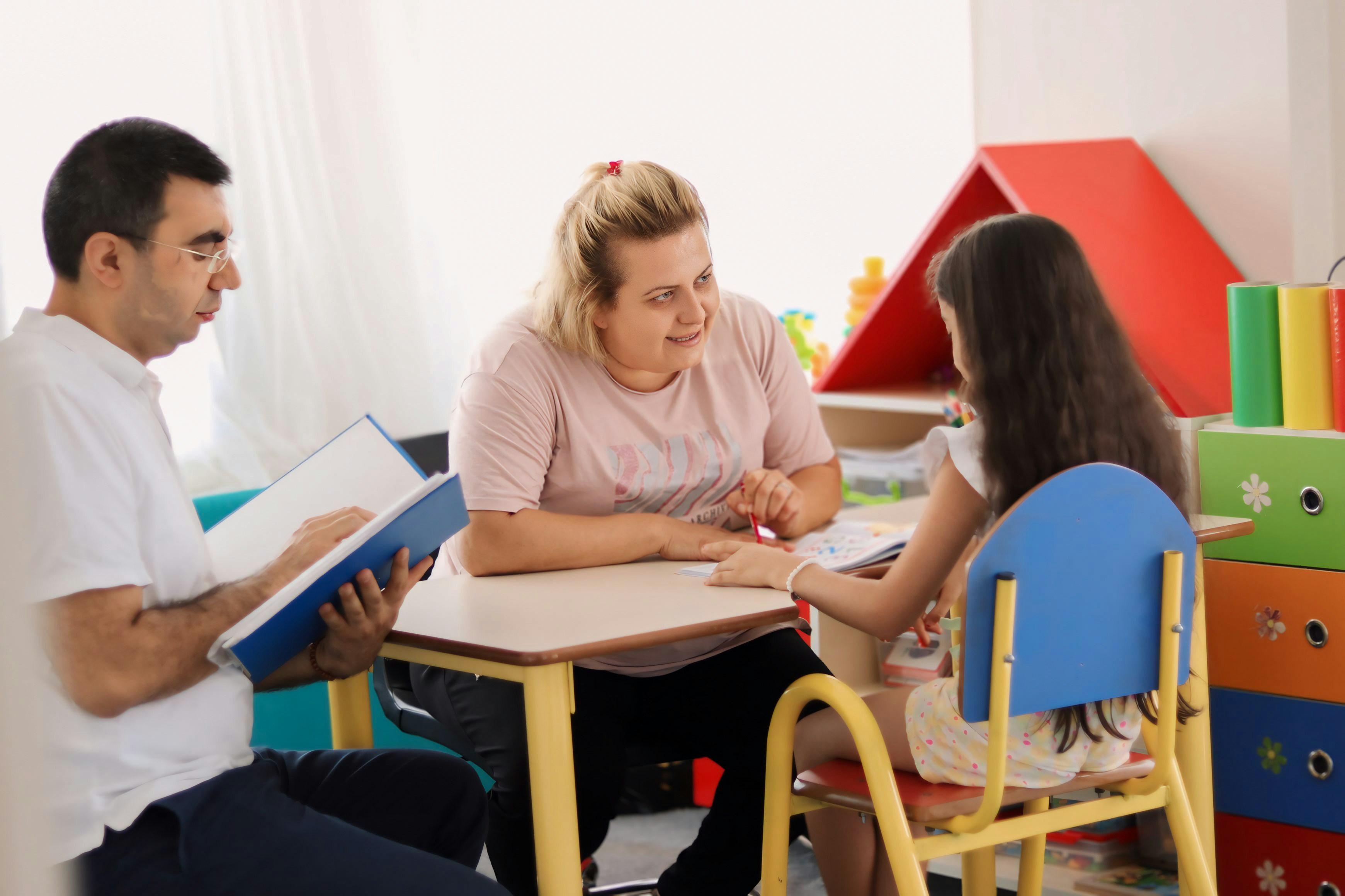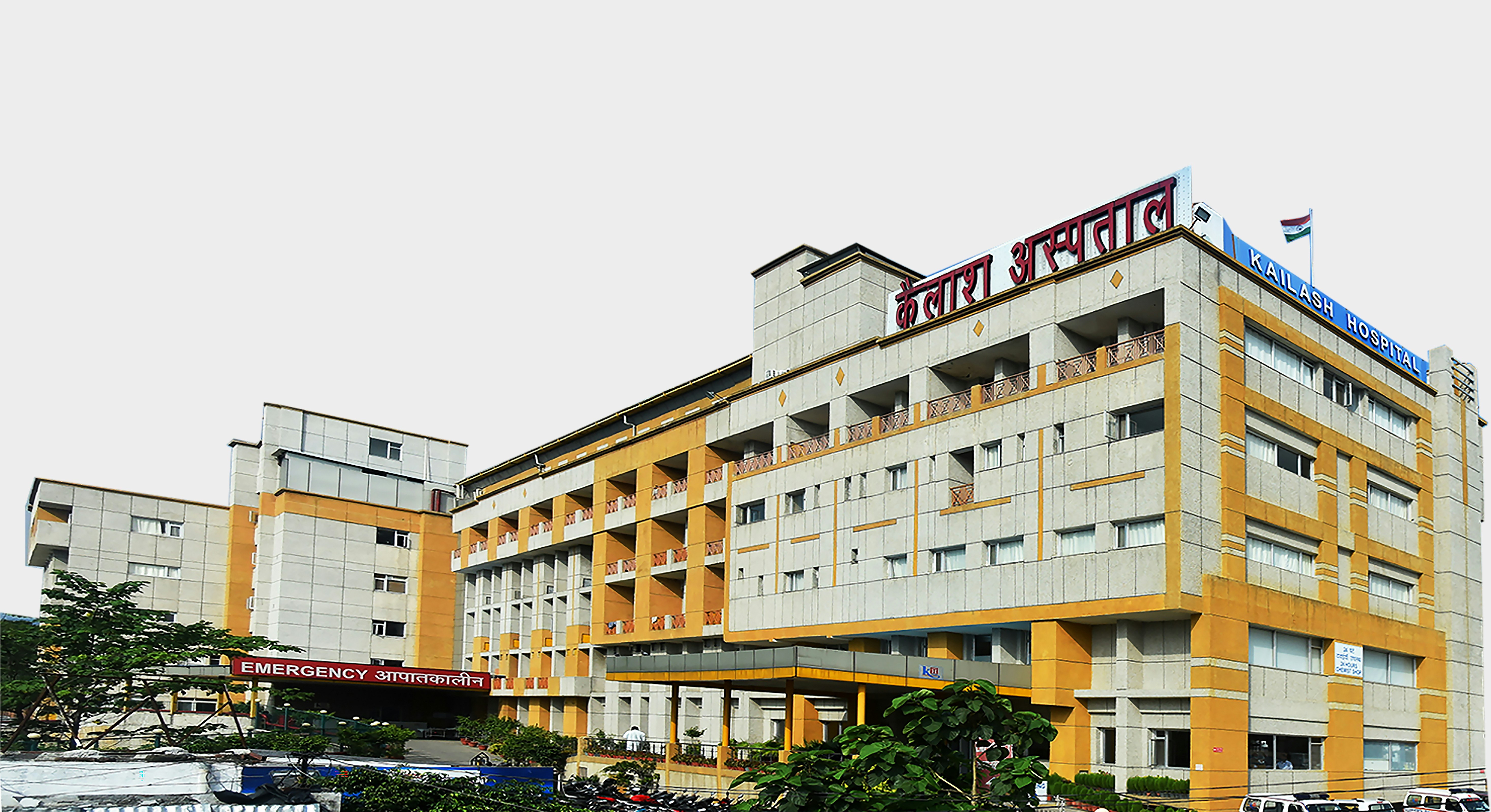Autism Testing Centers In Wisconsin: Where To Get Tested

Getting tested for autism can be a life-changing step — whether you’re a parent seeking answers for your child, a teen navigating school challenges, or an adult finally connecting the dots about lifelong differences.
Autism testing isn’t about labeling — it’s about understanding. A proper diagnosis opens doors to support, therapies, and services that can improve daily life, communication, and independence.
Who Should Consider Getting Evaluated
Autism looks different in everyone. Some people may struggle with social interactions, routines, or sensory sensitivities, while others may find it hard to communicate feelings or adapt to changes.
If you or someone you care about shows signs of autism — at any age — getting evaluated is a smart and empowering first step.
In Wisconsin, there are many trusted places that offer autism testing, from well-known children’s hospitals in Milwaukee and Madison to adult-focused clinics in Green Bay and Kenosha, as well as affordable programs through local universities.
In this guide, we’ll help you find the right option based on your age, location, and needs — so you can move forward with clarity and confidence.
Types of Autism Testing Services in Wisconsin
Not all autism testing looks the same. The process can vary depending on your age, symptoms, and whether you’re seeking a quick screening or a full diagnosis. Here’s a simple breakdown of the types of autism testing services available in Wisconsin:
Diagnostic Evaluations for Children
For young children, early diagnosis is key. These evaluations are often done by a team that includes child psychologists, speech therapists, or developmental pediatricians. The goal is to carefully observe your child’s behavior, communication, and play — and compare it with typical development.
What it includes:
- Parent interviews
- Play-based assessments
- Speech/language tests
- Observation of social skills
These evaluations help parents understand whether their child is on the autism spectrum and what kind of early support would be most helpful.
Autism Testing for Teens and Adults
Older kids and adults can sometimes be missed earlier in life — especially if they mask symptoms or were misdiagnosed. Autism testing for teens and adults usually focuses on social history, patterns of behavior, and how autism shows up in day-to-day life.
What it includes:
- Personal interviews
- Questionnaires about daily habits and social skills
- Feedback from family or teachers
- Cognitive or psychological testing (sometimes)
These tests are designed to identify autism signs that may not have been obvious in childhood but still affect relationships, school, or work.
Developmental Screenings vs. Comprehensive Assessments
Not sure where to start? Some Wisconsin clinics offer developmental screenings, which are shorter check-ins that help flag possible signs of autism. They’re a good first step — especially for toddlers or when you’re unsure if a full evaluation is needed.
If signs of autism are clear, a comprehensive assessment is the next step. This is a more in-depth process done by licensed specialists, and it leads to a formal diagnosis if needed.
Quick tip:
- Screening = quick check
- Full assessment = deep dive
Who Performs Autism Testing in Wisconsin?
Depending on where you go, evaluations can be done by:
- Developmental pediatricians
- Licensed psychologists
- Neuropsychologists
- Autism centers with multi-specialist teams
Each has their own testing tools, but all aim to understand how the brain processes the world — especially social cues, communication, and behavior.
Top Places to Get Tested for Autism in Wisconsin
Whether you’re seeking a diagnosis for your child, teen, or yourself as an adult, Wisconsin offers several excellent clinics, hospitals, and programs specializing in autism testing. Below, we’ve grouped some of the best options by age group and type of service.
For Children and Teens
- Milwaukee Autism Center – Children’s Hospital of Wisconsin
What They Offer: Full diagnostic evaluations for children starting from infancy through adolescence. They use trusted tools like the ADOS-2 (Autism Diagnostic Observation Schedule) to ensure accurate diagnoses.
Why Parents Choose It: The center includes developmental pediatricians, psychologists, and therapists who collaborate to provide comprehensive care. After diagnosis, they offer early intervention programs, therapy, and family support.
Extra Support: Services available in Spanish and other languages.
Website: chw.org - University of Wisconsin-Madison Waisman Center
What They Offer: Diagnostic assessments and developmental screenings for children suspected of autism. The center combines clinical services with research to offer up-to-date testing methods.
Why It’s Great: Offers access to research-based therapies and interventions, and supports families throughout the process.
Insurance Accepted: Most major insurance plans.
Website: waisman.wisc.edu - Wisconsin Early Autism Project (WEAP)
What They Offer: Screening and diagnostic evaluations, plus ABA therapy referrals for young children with suspected autism.
Why Families Like It: Focus on early diagnosis and intervention with a compassionate approach tailored to each family’s needs.
Website: weap.org
For Adults
- Milwaukee Adult Autism Clinic – Froedtert & Medical College of Wisconsin
What They Offer: Specialized adult autism evaluations using interviews, observation, and assessment tools designed for adults.
Why Adults Choose It: Provides a respectful, supportive environment that fosters self-awareness. They also offer life skills workshops and community resources after diagnosis.
Website: froedtert.com - Touchstone Mental Health Services – Statewide Locations
What They Offer: Autism and mental health evaluations for teens and adults throughout Wisconsin. They provide counseling, case management, and support with Medicaid enrollment.
Why It’s Great: Affordable or free services for low-income families, with telehealth options available.
Website: touchstonemhs.org - University of Wisconsin-Milwaukee Autism Research Lab
What They Offer: Adult autism screenings through ongoing research studies and clinical programs.
Why It’s Unique: This is a good option for adults without insurance or those interested in participating in research. Some services may be free or low-cost.
Good Fit For: College students, young professionals, or adults seeking self-understanding.
Website: uwm.edu/psychology/autism-lab
Multidisciplinary Autism Evaluation Centers
- Children’s Long-Term Support (CLTS) Waiver Program – Various Locations
What They Offer: State-funded evaluations and developmental services for children with special healthcare needs who qualify for Wisconsin Medicaid.
Why It’s Valuable: Provides medical, psychological, and therapeutic evaluations in one coordinated program.
Website: dhs.wisconsin.gov/clts/index.htm - The Gillette Center – Madison
What They Offer: Comprehensive autism testing and follow-up therapies for children and teens, led by experienced developmental specialists.
Why Families Choose It: Known for detailed evaluations, personalized recommendations, and continuity of care.
Special Note: Some services may require private payment or insurance coverage.
Website: gillettecenter.org
Support Available After Diagnosis
Many of these centers don’t stop at testing. They help you understand the results, create a support plan, and connect you with:
- Speech therapy, ABA, or occupational therapy
- School advocacy and IEP support
- Job coaching and life skills training
- Counseling or support groups
What to Look for in an Autism Testing Provider:
- Experience with your age group (child, teen, or adult)
- Clear testing steps explained up front
- Licensed professionals (psychologists, neurologists, developmental pediatricians)
- Services offered after diagnosis
- Accepts your insurance or offers payment plans
City-by-City Guide to Autism Testing Locations in Wisconsin
City | Clinic/Center Name | Who They Test | Type of Services | Insurance / Payment | Website |
Milwaukee | Milwaukee Autism Center – Children’s Hospital of Wisconsin | Children, Teens, Adults | Diagnostic, ABA, Therapy, Support | Accepts most major insurance | chw.org |
Milwaukee | Touchstone Mental Health Services | Teens, Adults | Evaluations, Behavioral Health, Counseling | Accepts Medicaid and private insurance | touchstonemhs.org |
Madison | University of Wisconsin–Madison Waisman Center | Children, Teens | Diagnostic Evaluations, Early Intervention | Most major insurances | waisman.wisc.edu |
Madison | Gillette Center | Children, Teens | Autism Testing, Therapy, Developmental Services | Private pay and insurance accepted | gillettecenter.org |
Green Bay | Aurora BayCare Behavioral Health | Children, Teens, Adults | Diagnostic Evaluations, Therapy | Most major insurances | aurorahealthcare.org |
Green Bay | Wisconsin Early Autism Project (WEAP) | Children | Screening, Diagnostics, ABA Referrals | Insurance and private pay options | weap.org |
Kenosha | Kenosha Autism Center | Children, Teens | Autism Testing, Therapy | Accepts Medicaid and private insurance | kenoshaautismcenter.org |
Racine | Aurora Behavioral Health Services | Children, Teens, Adults | Diagnostic Evaluations, Counseling | Most major insurances | aurorahealthcare.org |
Eau Claire | Mayo Clinic Health System | Children, Teens, Adults | Neurodevelopmental Testing, Therapy | Most insurance accepted | mayoclinichealthsystem.org |
Appleton | Appleton Autism Clinic | Children, Teens | Diagnostic Evaluations, Therapy | Accepts Medicaid and private insurance | appletonautismclinic.com |
La Crosse | Gundersen Health System | Children, Teens, Adults | Developmental Screenings, Diagnostic Testing | Most insurance accepted | gundersenhealth.org |
Fond du Lac | Fond du Lac Autism Services | Children, Teens | Autism Diagnosis, Therapy | Insurance and sliding scale available | fondulacautismservices.org |
Wausau | Aspirus Autism Evaluation Clinic | Children, Teens | Autism Testing, Behavioral Therapy | Most major insurances | aspirus.org |
Superior | Essentia Health Behavioral Medicine | Children, Teens, Adults | Neuropsychological Testing, Autism Diagnosis | Most insurance accepted | essentiahealth.org |
Janesville | MercyHealth Janesville Autism Services | Children, Teens | Autism Testing, Therapy, Early Intervention | Accepts Medicaid and private insurance | mercyhealth.org |
Sheboygan | Aurora Sheboygan Autism Program | Children, Teens | Diagnostic Evaluations, Therapy | Most major insurances | aurorahealthcare.org |
Manitowoc | Manitowoc County Health Department | Children | Developmental Screenings, Autism Evaluations | Public health services, sliding scale | manitowoccountywi.gov |
Brookfield | Froedtert & Medical College Autism Clinic | Children, Teens, Adults | Diagnostic Evaluations, Adult Testing | Most insurance accepted | froedtert.com |
Waukesha | Waukesha County Autism Services | Children, Teens | Diagnostic Testing, Therapy, Behavioral Support | Medicaid and private insurance | waukesha.gov |
Oshkosh | Aurora Oshkosh Behavioral Health | Children, Teens, Adults | Autism Evaluations, Counseling | Most major insurances | aurorahealthcare.org |
Additional Notes
- Age Matters: Some centers specialize in children or teens only, while others provide services for adults.
- Insurance Check: Call ahead to confirm coverage or payment options, as policies can vary.
- Referral Needed?: Some clinics require referrals, especially for Medicaid or public programs.
- Wait Times: Larger metropolitan areas like Milwaukee, Madison, and Green Bay may have longer waits; consider contacting multiple centers.
Low-Cost and Free Autism Testing Resources in Wisconsin
Getting tested for autism can be costly, especially without insurance. Fortunately, Wisconsin offers several options for low-cost or even free evaluations—especially for children and families with limited income.
State-Funded Clinics
The Wisconsin Department of Health Services (DHS) and the Wisconsin Early Intervention Program help families with young children (under age 3) access autism testing and early support services. These programs are often free if your child qualifies.
Early Intervention Program Website: dhs.wisconsin.gov/earlyintervention
University-Based Autism Clinics
Universities like the University of Wisconsin–Madison and the University of Wisconsin–Milwaukee offer autism testing through their psychology and education departments. These clinics are supervised by licensed professionals and often provide reduced fees, especially for research-based assessments.
- UW–Madison Waisman Center: Offers low-cost evaluations and participates in autism research.
- UW–Milwaukee Autism Research Lab: Provides adult autism screenings through ongoing studies.
Nonprofits and Grants
Some nonprofits, such as the Wisconsin Autism Society and Raising Special Kids, may offer scholarships, referrals to lower-cost testing, or connect families to free resources and insurance assistance.
- Wisconsin Autism Society: wisconsinautism.org
- Raising Special Kids: raisingspecialkids.org
How to Choose the Right Evaluation Center
Not all testing centers are the same, and picking the right one can make a big difference in how helpful and accurate the evaluation is. Here’s what to look for:
Key Features:
- Qualified professionals like licensed psychologists, developmental pediatricians, or behavior specialists with autism expertise.
- Age-appropriate services — some clinics specialize in children, others in adults.
- Comprehensive evaluations that go beyond quick screenings to include behavioral observation, history, and use of trusted tools like the ADOS.
Questions to Ask Before Booking:
- Do you evaluate children, teens, or adults?
- What is the current wait time for an appointment?
- Do you accept insurance or offer payment plans?
- Will I receive a written report with recommendations?
Choosing a place that answers your questions clearly and treats you with respect is a good sign you’re in the right hands.
Do You Need a Referral for Autism Testing in Wisconsin?
Whether you need a referral for autism testing in Wisconsin depends on where you go and how you plan to pay.
If You’re Using Insurance
Most private insurance plans—and even BadgerCare Plus (Wisconsin’s Medicaid)—usually require a referral from your child’s pediatrician or your primary care doctor. This referral helps insurance approve and cover the cost of testing.
If You’re Paying Out of Pocket
If you’re not using insurance, you generally don’t need a referral. You can contact a clinic or licensed psychologist directly to schedule an autism evaluation.
For Schools or Early Intervention
If your child is under 3 years old, you can access autism testing and services directly through Wisconsin’s Birth to 3 Program, which supports early intervention. If your child is 3 or older, you can request testing through your local school district’s special education department—even if your child is not yet enrolled in school.
Autism Testing for Adults: What’s Different?
Autism isn’t only diagnosed in childhood. Many adults go undiagnosed for years because they learned to “mask” their symptoms or were misunderstood. More adults in Wisconsin are now seeking autism evaluations after recognizing signs in themselves.
What Makes Adult Testing Unique?
- Signs Are Subtle: In adults, autism might appear as social exhaustion, anxiety, difficulty with change, or intense focus on routines and interests. These signs can sometimes be mistaken for anxiety, ADHD, or personality quirks.
- Life Responsibilities: Adults may already have jobs, families, or other commitments, so evaluations consider how autism affects everyday life—not just school or social settings.
- Experienced Providers Matter: Not all clinics specialize in adult autism diagnosis. It’s important to find providers familiar with adult autism traits, often licensed psychologists or neuropsychologists.
Why Adults Get Tested
- To better understand themselves
- To access workplace or academic accommodations
- To connect with support groups or community resources
- To finally get answers to lifelong questions
How Long Does Autism Testing Take in Wisconsin?
Autism testing is not a one-time visit—it’s a step-by-step process designed to fully understand a person’s strengths, challenges, and needs. Here’s what you can expect when getting tested in Wisconsin:
Initial Call or Intake
You’ll start by filling out forms and may have a short phone interview to discuss concerns and history.
Wait Time
Depending on the clinic or specialist, wait times can vary from a few weeks to several months—especially at popular centers or with experienced evaluators.
Testing Day(s)
You or your child may spend several hours with a psychologist or specialist. This typically includes:
- Answering questions about behavior and development
- Completing tasks or puzzles to assess cognitive skills
- Discussing daily life and social interactions
- Input from parents or caregivers to provide a full picture
Final Report
After testing, you’ll receive a detailed written report with results and any diagnosis. This can take anywhere from 2 to 6 weeks.
What Happens After the Diagnosis?
A diagnosis is not the end—it’s the start of understanding and support. If an autism diagnosis is given, here’s what comes next:
- You’ll get a written evaluation with recommendations.
- You can begin therapies such as ABA (Applied Behavior Analysis) for children, speech or occupational therapy, or social skills and life coaching for teens and adults.
- Support can include school services like IEP or 504 plans, workplace accommodations, or community programs.
- Government assistance programs, including Wisconsin’s Division of Developmental Disabilities (DDD), Social Security benefits, or job training programs, may become available.
- Many feel relief and empowerment from understanding what’s been happening all along.
Tip: Even if autism is not diagnosed, testing might uncover other important information—such as anxiety, ADHD, or learning differences—helping you get the right support going forward.
Also read Autism Testing Centers In Washington



